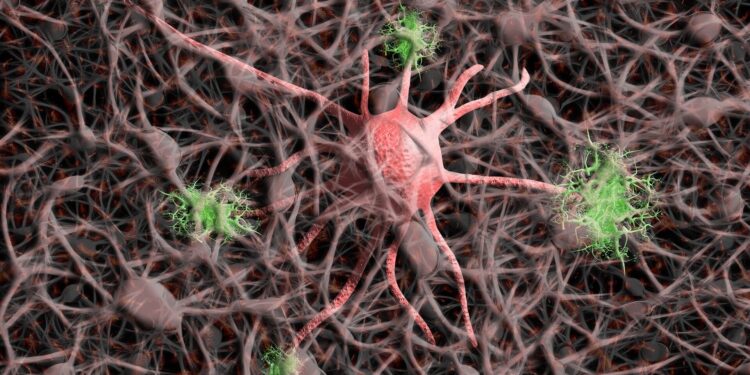Credit: Pixabay/CC0 Public domain
An international collaborative study recently discovered that variants in the PPFIA3 gene cause a previously unknown syndromic neurodevelopmental disorder.
The study was published in the American Journal of Human Genetics. The research was led by Dr. Maimuna Paul, postdoctoral researcher, and Dr. Hsiao-Tuan Chao, child neurologist, assistant professor at Baylor College, faculty member in the Cain Pediatric Neurology Research Foundation Laboratories of the Jan and Dan Duncan Neurological Research Institute (Duncan NRI) at Texas Children’s Hospital and an investigator at the McNair Medical Institute with the Robert and Janice McNair Foundation
The PPFIA3 gene produces the receptor-like protein tyrosine phosphatase, protein-alpha-3 interacting with polypeptide f, which is a scaffolding protein present in neurons. PPFIA3 is important for the formation and function of synapses, structures that act as junctions between neurons and are essential for proper communication between them. Although the important biological role of this protein was evident, this is the first study linking a human neurological disease to PPFIA3 dysfunction.
“In 2019, we received our first referral for a person with a rare variant of PPFIA3 from the Undiagnosed Diseases Network,” said Dr. Chao. “Using GeneMatcher to identify and collaborate with multiple researchers around the world allowed us to discover and study 19 additional individuals with variations in this gene. So far, we have identified seventeen unique PPFIA3 variants from 18 families.”
All 20 individuals reported in this study had developmental delay, intellectual disability, hypotonia, dysmorphisms, microcephaly or macrocephaly, autistic features, and epilepsy.
Analysis of the PPFIA3 protein domain and molecular modeling revealed that most of these variants were located in the coiled-coil domain and the SAM1 domain, regions that are essential for this protein to carry out its key biological functions in communication. neuronal.
“To determine the pathogenic capacity of PPFIA3 variants, we turned to fruit fly models in which several powerful genetic tools exist to study disease genetic variants,” added lead author Dr. Maimuna Paul. “Using these, we generated transgenic fruit flies expressing either the normal version of human PPFIA3 or five versions of the human variant protein. Flies with the altered PPFIA3 protein showed defects in multiple developmental processes and in the formation of synapses.
They found that in fly embryos, lethality due to loss of both copies of fly liprin-α could be partially reversed by expression of the normal version of human PPFIA3, suggesting partial functional conservation between human and fly versions of this protein. Together, several tests of survival and behavior in fruit flies suggest that the severity of symptoms in affected individuals and flies may correlate with the location and type of PPFIA3 variants.
“Clinical results and functional testing in fruit flies helped us conclude that these 20 individuals suffer from a newly recognized neurodevelopmental disorder caused by loss of PPFIA3 function,” Dr. Chao said. “This study has laid a solid foundation for our future efforts to better understand the underlying disease-causing mechanisms of this disorder. This improved understanding may in the future uncover therapeutic interventions for people with these disorders. neurodevelopmental disorders linked to PPFIA3.”
More information:
Maimuna S. Paul et al, A syndromic neurodevelopmental disorder caused by rare PPFIA3 variants, The American Journal of Human Genetics (2024). DOI: 10.1016/j.ajhg.2023.12.004
Provided by Texas Children’s Hospital
Quote: Variants of synaptic scaffolding protein PPFIA3 discovered to cause novel syndromic neurodevelopmental disorder (January 4, 2024) retrieved January 4, 2024 from
This document is subject to copyright. Apart from fair use for private study or research purposes, no part may be reproduced without written permission. The content is provided for information only.



